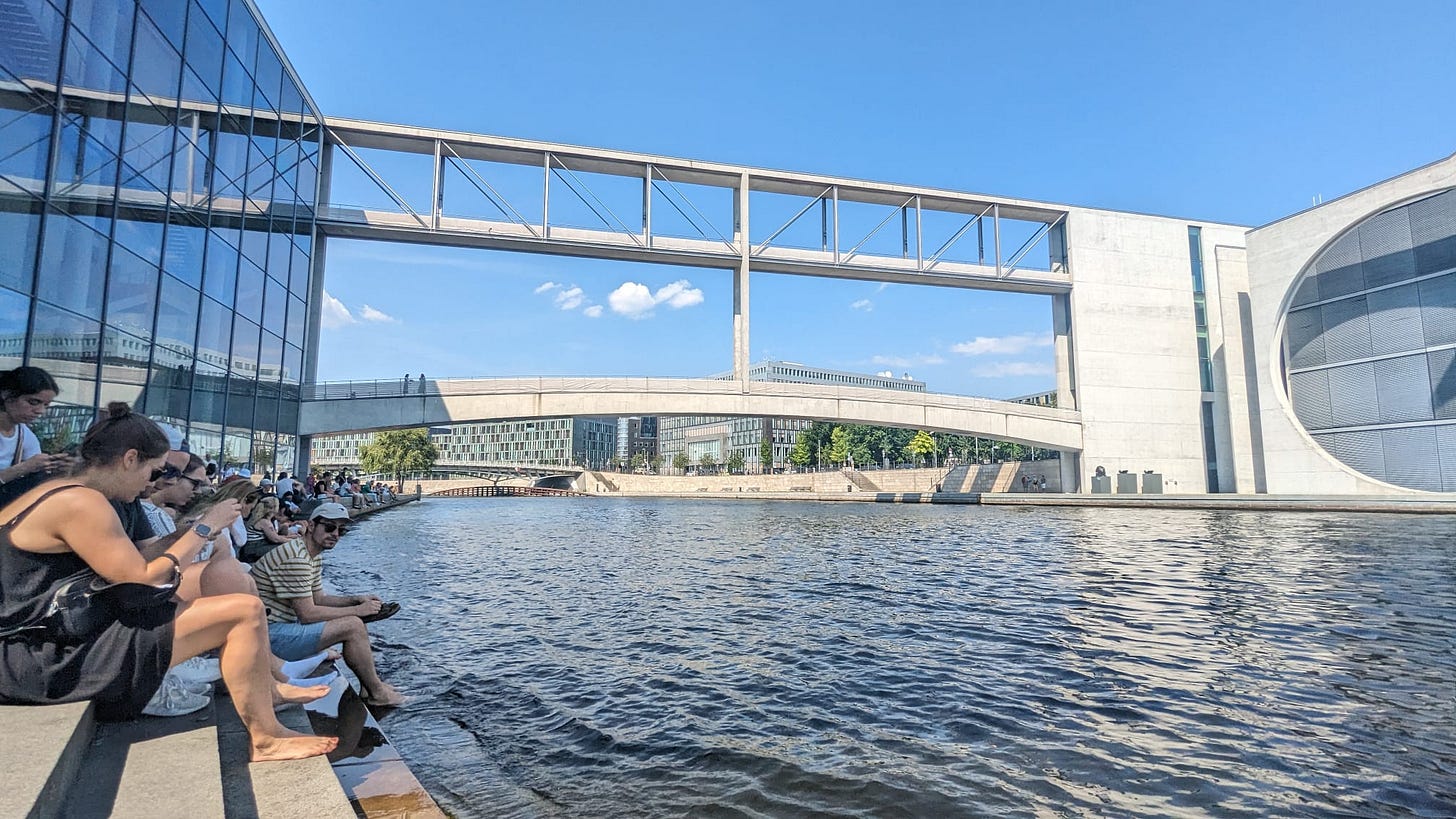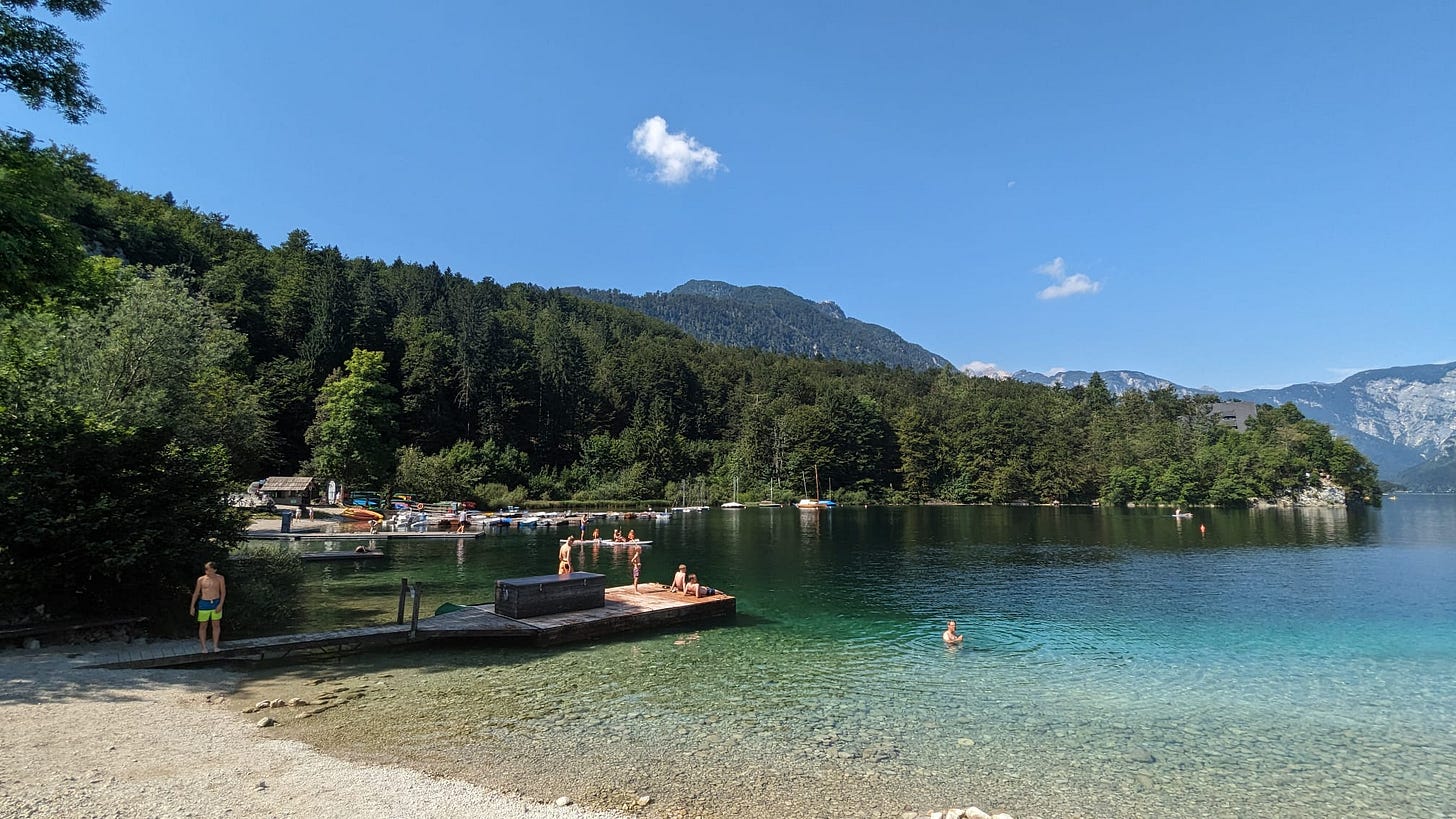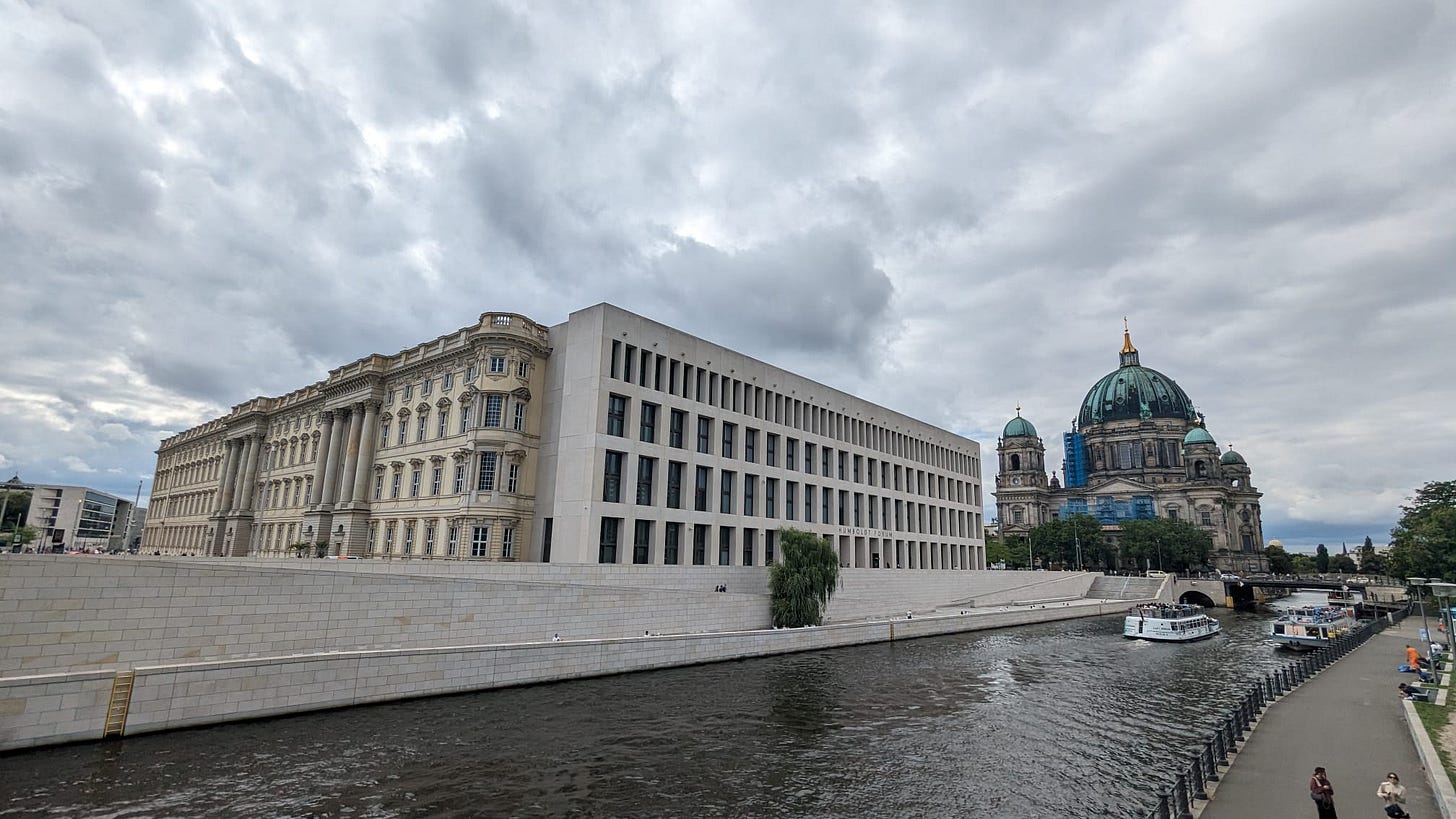It's not good to be home
Finally christening my Substack: the race riots; returning from my holiday; and pop stars are back - but this time, it's personal
Returning from my summer holiday, one thought dominated my mind on the plane home: I should really write something on my Substack.
Months ago, I created an account, but every time I attempted to write, I gave up. Whether due to a lack of confidence that anyone would want to read my writing, or excuses about being too time-poor, I ignored the whole thing, telling myself that one day I’d get around to it.
Now, as a freelancer, my excuses have disappeared. If I can’t sell my own writing, why would anyone buy it? After a long trip away to rest and clear my head, I realised: I should just get on with it.
So, here it is: my maiden piece. Every week (I think? Who knows!), I will write a newsletter on three broad topics. The first: the political story of the week. It might not be the political story, because that can be quite dull. But it will be a story, with my take on it.
The second: a bit of culture. Probably something we’re all watching on TV, some music, or pop culture. Maybe something broader, more cerebral. Probably not that, but you get the idea.
The third: something personal. With thousands of other journalists more experienced, wiser, and more politically astute than me, what I can offer is something about myself. Sometimes introspective, sometimes vulnerable, sometimes nonsensical. Through this, I hope you get to know me and decide to stick around.
So, without any more preamble, here it is! I hope you like it, decide to subscribe, and enjoy my writing. Cheers.
England in flames
Watching the dark cloud of Islamophobia and racism descend on the UK, it’s true that many of us felt something coming. Politicians cut off safe and legal routes for asylum seekers and began openly describing refugees entering the country as invaders. Hate crime incidents and reports of islamophobia and anti-semitism across the UK increased. I noted the frequency with which I started receiving hateful comments following a media appearance where I would defend immigration or refugees. More often than not, my Jewish ancestry and surname meant these comments were accompanied by anti-semitism.
But the scenes of the past few days have surpassed what I anticipated. The far-right, empowered by social media, have taken to the streets across the UK, torching their communities and others’, beating Black and Asian people, looting shops, burning down libraries and smashing up community buildings. In two particularly abhorrent moments, a furious lynch mob set fire to a hotel housing asylum seekers and blocked the doors to prevent escape.
Egged on by a mix of right-wing outrage-bait commentators, click-driven media outlets, and social media bots, small pockets of racism have festered and spread, infecting the body politic.
What is perhaps most concerning is that many caught on camera were not old, gammony men, but a wide mix of women, families (some with young children), teenagers, and young adults. Watching footage on TikTok, the number of young people at these riots was stark. Some may have attended through morbid curiosity, hoping to capture footage to stream to their peers, to be part of something historic (even if that history will be seen as a bloodstain in years to come), or to smash up a shop and steal a tray of Greggs’ sausage rolls. The motive hardly matters.
So many people stood there, phones in hand, while a baying mob set fire to a Holiday Inn full of refugees and barricaded the exits. Our collective desensitisation to violence and suffering is one thing, but the pace at which the dehumanisation of vulnerable people has entered mainstream political discourse has led us to an intolerable crisis. For too long, media commentators, politicians, and citizens have allowed the language used to describe refugees and migrants to become more dangerous. We no longer talk about why people flee countries of war, oppression, and violence; we talk about how to stop them entering our country. Speaking about them as if they are a problem to be solved, without considering their reasons for escaping, has led us to this point.
So what now? Arrests, prosecutions, and convictions, quickly. Here, the ubiquity of social media is useful. Identification of rioters will be easier, and they must be shown the full force of the law.
Going forward, we all have a responsibility to consider the language we use. We can have grown-up conversations about migration policy without descending into inflammatory rhetoric. All commentators and politicians must remember that the vast majority of refugees are traumatised and in search of safety. The vast majority of immigrants have come here in search of a better life. We cannot have useful conversations without discussing the broader context in which people leave.
The government must be bolshy with social media companies. X, Facebook, Instagram, and TikTok must not be allowed to let conspiracy theories run unchecked. They should not restore accounts of those known to spread hate and misinformation. Tech companies must have obligations and a moral responsibility for societal cohesion.
Longer term, politicians must address the deep-rooted fury within our communities. Deprivation, inequality, and the degradation of public services have led to a deeply unhappy country. But they must not excuse the swell of racism and Islamophobia that exists. Call language and behaviour what they are and condemn them in the strongest terms.

It’s a Brat Summer
I’ve been enjoying the return of proper pop stars. The soaring success of Taylor Swift has brought me, a lifelong Swiftie, untold levels of smugness. But then there are the new kids: Chappell Roan, Sabrina Carpenter, and Olivia Rodrigo with their tight little skirts, big hair, painted faces, and dance routines. And the name making all the headlines—potentially changing the course of fascism in America—Charli XCX, who has commandeered the US presidential election by declaring the Democrat nominee Kamala Harris a “brat,” a reference to her electro-pop album.
It’s good to see female pop stars back and finally given the respect they deserve. For too long, female-led pop was portrayed as something without skill, with the women who did it seen as pawns in a male project of sexualization. The men wrote the songs; the women merely performed them. Pop, like so much of female art, was demeaned. Now, it is leading the charge.
Even better, the music is more unapologetically feminine than ever. It’s like it’s reclaiming what was taken - and even more."Brat" is a homage to being a woman in your twenties and thirties—the messy unpredictability of it all. She sings about female jealousy, having an ego, partying, doing coke, and having sex. But the album also features songs about intergenerational trauma, wanting children, falling in love, and feeling depressed. Chappell Roan finds her sexuality (and maybe even yours) through her music, Sabrina Carpenter sings - giggling, scornful - about men embarrassing her, ghosting her, and generally treating women badly.
Female artists are rallying together and going full-throttle on what it is to be a woman in the 21st century. Pop is back, and this time it loves women the way women love it.

EU go, I like it here
It’s true that I returned from my twelve-day summer holiday to an England being smashed up and burned down by neo-Nazis, which certainly didn’t help things. But even if I had landed to a peaceful, sunny August in London, I’d still be quietly seething about our collective decision, eight years ago now, to leave the European Union.
Exploring central Europe (starting in Germany and travelling through Austria and Slovenia) made it evidently apparent that our decision to leave the EU and go it alone was nothing short of collective insanity. Why wouldn’t we want to be associated with these places? A beautiful, culturally rich collective of wonderful countries, with the freedom to move seamlessly between them, transitioning from a bustling urban environment to alpine air to blue lakes in a mere matter of hours. Grand palaces, wide roads, great service, diverse nightlife, kind people. Lakes not filled with human waste. Cities not closing down at 10 pm. Trains that run on time.
Instead, we filled our heads with the notion that we’d be better off without all that. We prefer our small, grey cities with fewer hospitality staff, our wild swimming spots with a helping of human shit, and our roads and railway lines decaying and without investment.
Thank God for the Schengen area. The Brexiteers can’t take that away from us.
For now, I’ll just continue to miss Europe from afar - and dream about my next holiday.
Oh well. At least we have our sovereignty, eh?







I agreed with every word that you wrote here. Oh how I wish more people would see the bigger pictures- what makes people risk everything to come to our country? How can we find ways to mend theirs when the British probably broke them in the first place?
Why can’t we educate ourselves to be more tolerant & outward looking?…
That's a jarring homecoming, after travel, Zoe. I miss being part of Europe, too. Glad to see you sharing your thoughts on it all here.